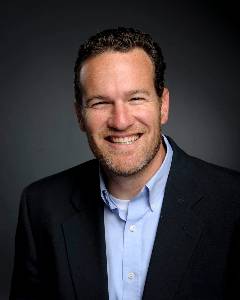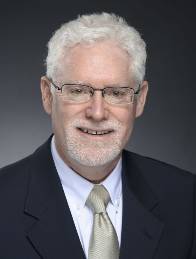Research Fellowship Program
Research fellowships are available for MSU faculty members to conduct research projects related to regulation and policy. Fellows produce publicly-accessible policy issues papers and other communications that provide objective, research-based information to lawmakers, policy advisers, and the general public on critical policy and regulatory issues, and participate in workshops and conferences organized by the research fellows. Appointments are for a two-year period, with the potential for renewal. Fellowships are awarded through an MSU-wide competitive process. Read more about the Research Fellowship Program's criteria, expectations, and requests for proposals.
The 2020-2022 funding cycle has closed.
The Initiative is committed to engaging undergraduate students participate in MSU's
world-class, ground-breaking research under the guidance of faculty mentors. Listing
your research opportuities or indicating your willingness to be an undergraduate research
mentor is a great help in this work. Thank you for your dedication to undergraduate
learning and IRAEA's mission to engage students in faculty-led research.
2020-2022 Research Fellows

Mariana Carrera
Assistant Professor, Department of Agricultural Economics & Economics
The U.S. healthcare system relies heavily on market forces, with efforts towards cost containment mainly focused on demand-side financial incentives. But despite widespread public frustration with the high costs of health care, many of these incentives have proven ineffective in achieving spending reductions. A better understanding of the obstacles that hinder these incentives is needed to inform current debates regarding possible regulatory changes in our complex health care system. The proposed research program will shed light on three of these areas: One project focuses on physicians’ lack of information regarding patient costs, and reluctance to use such information to inform treatment decisions. A second project focuses on physician agency, estimating how much weight physicians place on patient health benefits relative to their own. A third line of research explores consumers’ responses to financial incentives to undergo health risk screenings and to improve their health.

Gary Caton
Professor, Jake Jabs College of Business & Entrepreneurship
Abstract:
Energy is both interwoven into the daily lives of nearly all Americans and one of the most regulated industries in the nation. The extraction, transportation and refinement of crude oil produces vital everyday products such as gasoline, jet fuel and heating oil. Similarly, natural gas, coal, nuclear, wind, solar and hydro are all used to produce electricity that powers our buildings, homes, and, increasingly, our various modes of transportation. Transmission of this electricity occurs over millions of miles of line, which combined has been rated by http://www.greatachievements.org/ as the number one greatest engineering achievement of the 20th century. The energy industry is overseen by a large number of federal, state and local actors using a complex web of regulations reaching across all the various industry subsectors. At the federal level, these policies and regulations flow from the executive and legislative branches of government, as well as from independent agencies. Some of the major actors include Congress, the Department of Energy, the Federal Energy Regulation Commission, the Nuclear Regulatory Commission, and the Tennessee Valley Authority. We propose to review these regulations, and then analyze and measure the complexity of one (or more) of these regulation(s).
Specific Aims:
We propose a two-phase study of energy regulation. In phase one, we propose a review of the primary regulations on upstream, midstream and downstream energy producers. Phase two will be a study and the development of a measure of the complexity of one or more of these primary regulations faced by energy companies.
Significance:
Complex regulations make it difficult for regulated entities to interpret and comply with the underlying intent of policy makers. We believe this study could guide policy makers and regulators when proposing and writing new and modifying existing regulations.

Justin Gallagher
Assistant Professor, Department of Agricultural Economics & Economics
Abstract
Justin Gallagher will continue a research agenda that focuses on how individuals evaluate and respond to environmental risk, and the role of regulation in managing this risk.

Andrew Hill
Associate Professor, Department of Agricultural Economics & Economics
Abstract
Suicides, drug overdoses, and alcoholism have claimed the lives of hundreds of thousands of Americans every year for the past two decades (Case and Deaton, 2020). White working-class males are particularly at risk. There is a strong link between economic conditions and suicide, one of the primary contributors to these “deaths of despair”. In this project, we will explore the extent to which unemployment insurance can reduce deaths by suicide. Using longitudinal data, we will interact measures of county-level labor market shocks with state-level variation in unemployment insurance benefits to investigate whether larger social safety nets mitigate the risk of suicide caused by economic downturns. Our focus will be on working-age white males given they are most at risk from suicide, although impacts on all demographic groups will be assessed.
Statement of Specific Aims of the Project
Unemployment insurance is designed to temporarily replace the wages of people who have lost their jobs while they look for work. Benefits are generally paid by state governments, and there is a wide range of weekly unemployment benefits across states. We will test the hypothesis that states with more generous unemployment insurance have lower suicide rates when local labor markets experience negative shocks. Our study is motivated by the recognition that there is an increased risk of suicide when an individual experiences financial stress and that unemployment insurance could reduce some of this stress.
Significance of the Project
Our aim in this project is to explore whether the benefits of unemployment insurance extend to reducing suicide rates, and, by doing so, provide a fuller and more complete assessment of one of the US’s key social safety net programs. There are immense social costs associated with the “deaths of despair”. Federal and state governments are already spending considerable amounts on potential mitigating measures, such as programs targeting opioid abuse. One of our goals is to explore whether expanding an existing welfare program like unemployment insurance may offer more cost-effective solutions to the challenges posed by suicide and substance abuse than new programs. This fits into the IRAEA mission as it speaks directly to optimal labor market and healthcare policy.

Edward Gamble
Abstract
Prior scholarship has highlighted the importance of understanding the relationships between regulation and business evolution. However, a gap exists in scholarship regarding how specific accounting and financial regulations impact venturing activities. Two examples of this include: a) the impact of varying accounting and finance regulations on for-profit venturing, and b) the impact of varying accounting and finance regulations on socially-oriented (hybrid or nonprofit) venturing. For this fellowship, I aim to explore these two related streams of research concurrently, over a two-year period. The specific outcomes that will emerge from these two streams of research include: several manuscripts for submission in peer-reviewed academic journals, co-organizing a conference/special issue on the topic, inviting guest academics for seminars, getting students involved with research, and applying for external grants.
Specific aims
There are two interrelated accounting and financial regulatory streams of research in this proposal. One stream of research targets the impacts of regulation on for-profit venturing and the other stream of research targets the impacts of regulation on socially-oriented (hybrids or nonprofit) venturing. The specific outcomes under these two streams, are as follows: Stream 1 (the impact of varying accounting and finance regulations on for-profit venturing): (1) To complete and submit five papers related to banking regulations and business performance. (2) To co-organize a conference and associated special issue in a high impact journal. (3) To present a variety of these papers to an academic or professional audience. Stream 2 (the impact of varying accounting and finance regulations on socially-oriented venturing): (1) To complete and submit three papers related to regulating social impact measurement. (2) To continue the academic review process with two papers on nonprofit tax exemption regulations. (3) To finish data collection and write up two papers on regulating certifications. (4) To collect data for a paper on behavioral aspects of environmental tax policy. Please see Appendix A for details on each project within the two streams. These details address the associated research question, methodology, and rationale for each paper.

Anton Bekkerman
Associate Professor, Department of Agricultural Economics & Economics
Anton Bekkerman will continue to develop a research program that investigates and helps better understand the roles of regulatory and policy structures on the dynamics of agricultural markets. I will focus my efforts on two research areas: (a) the impact of a favorable tax provision to agricultural cooperatives on changes to pricing behaviors between cooperatively and privately-owned grain handling facilities and (b) the potential changes in the relationship between agricultural output (crop) and input (fertilizer) markets resulting from the 2005 and 2007 ethanol mandates. Through rigorous economics research and synergistic, collaborative activities, and using successes from the previous two years as a foundation, my research program will provide important insights about how and to what extent regulation and policies may alter the costs of producing, marketing, and consuming food products, and develop a highly effective and diverese communication of that research in the form of peer-reviewed manuscripts, conference and seminar presentations, shorter white papers and less technical pieces, and workshops for regional stakeholders.

Eric Belasco
Associate Professor, Department of Agricultural Economics & Economics
Eric Belasco's research project will focus on the rules and regulations that are currently put into place as part of the federal agricultural safety net designed to protect farmers and ranchers from adverse market and production outcomes. The proposed project will focus on the following areas: (1) The impact of these policies on farm-level decisions; (2) Examine the unintended consequences of these programs on agricultural production and consumers; and (3) Better understand the role of labeling restrictions and regulations on agricultural production. This program will draw on currently funded programs and leverage those resources to extend the project to allow for a more successful research project at the end of the funding period. Collaborators from policy and academic backgrounds will be used to enhance the research of this program. Undergraduate researchers will play an important role in this project and get experience in conducting research and communicating results related to agricultural rules and regulations.

Mariana Carrera
Assistant Professor, Department of Agricultural Economics & Economics
The U.S. healthcare system relies heavily on market forces, with efforts towards cost containment mainly focused on demand-side financial incentives. But despite widespread public frustration with the high costs of health care, many of these incentives have proven ineffective in achieving spending reductions. A better understanding of the obstacles that hinder these incentives is needed to inform current debates regarding possible regulatory changes in our complex health care system. The proposed research program will shed light on three of these areas: One project focuses on physicians’ lack of information regarding patient costs, and reluctance to use such information to inform treatment decisions. A second project focuses on physician agency, estimating how much weight physicians place on patient health benefits relative to their own. A third line of research explores consumers’ responses to financial incentives to undergo health risk screenings and to improve their health.

Gary Caton
Professor, Jake Jabs College of Business & Entrepreneurship
Due to its human and physical geography, Montana is disproportionately served by community banks relative to most other states in the nation. Because of this, the health of community banks is important to the health of Montana’s economy.Previous grants from the IRAEAhavefunded my work on two research projects related to the impact of regulation on community banking. Caton will continueworking this strand of research with two new projects spread over the next two years. The first of thesewill look at the impact of the Dodd-Frank Act on bank investment decisions.The second research projectwill survey Montana-based banks with the intent to learn first-hand how financial regulation is impactingMontanacommunity banks, and which regulations are particularly challengingforsmallbank competitiveness.

Justin Gallagher
Assistant Professor, Department of Agricultural Economics & Economics
Justin Gallagher's research project will investigate how individuals evaluate and respond to environmental risk. The focus of the proposal is ona series of related projects that examine the effect of natural disasters on individual household finance and business profitability. In particular, the projects examine the role that insurance, public assistance, and lending institutions have on mitigating risk and smoothing financial shocks Federal regulation plays a potentially important role in disaster recovery by providing cash assistance, and through policies that determine how the private banking sector is organized However, as of yet, there has been no causal analysis regarding how federal cash assistance or banking regulation affects individual, business, and regional-level financial outcomes following the wealth shock of a large natural disaster.

Isaac Swensen
Associate Professor, Department of Agricultural Economics & Economics
Isaac Swensen's research will continue building a research program that contributes valuable insights into the effects of criminal justice policies and regulations on public safety. Along with new research projects, I am enthusiastic about furthering projects for which the groundwork has been established through my fellowship this past two years. This proposal focuses on several speciϐic projects that will contribute to three broad areas: (i) risky behaviors in higher education, (ii) gun related behaviors and the effects of gun policies, and (iii) the effect of viewing interpersonal violence on crime.

Peter Buerhaus
Director, Center for Interdisciplinary Health Workforce Studies and Professor, College of Nursing

Anton Bekkerman



Isaac Swensen
